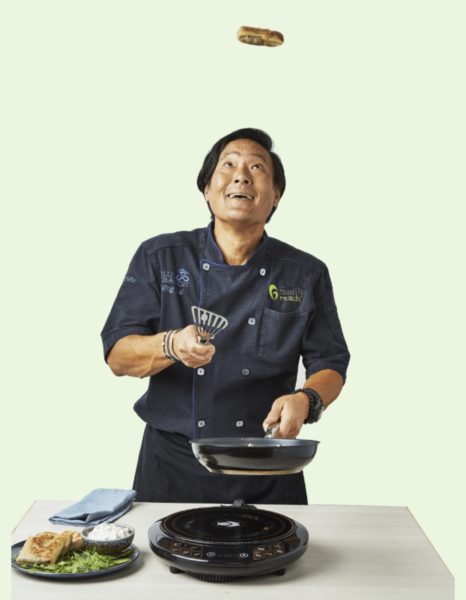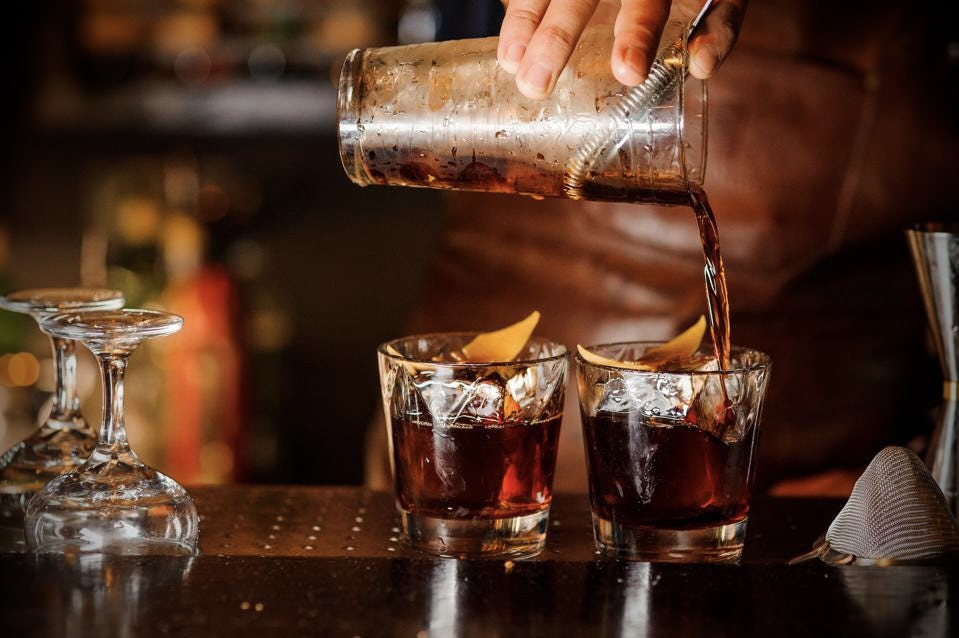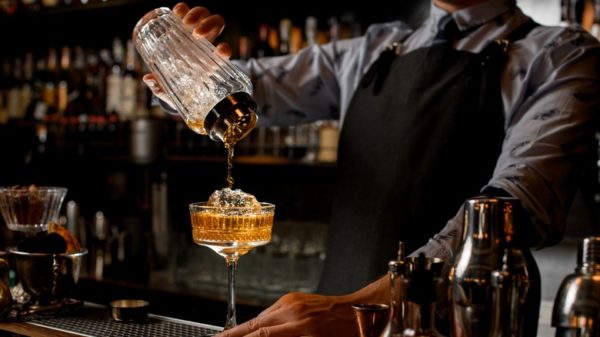No one would have predicted controversy when Ming Tsai, the acclaimed celebrity chef and owner of Blue Ginger in Wellesley, Massachusetts (now closed), recently took the stage for an interview as part of Boston University’s “Curated Cuisine” series. While the moderator, Irene Li, inquired about his career history and culinary inspirations, Tsai reclined looking red-faced (perhaps from overindulging on Pinot Grigio), shamelessly shilling for his line of frozen vegan products and interrupting with snarky remarks. He clearly intends to be funny, though much of his humor falls painfully flat.
Before Ms. Li can even commence the interview, Tsai rudely interjects with a cringey, borderline racist dad joke directed toward the audience, undermining her command of the proceedings. “What’s the difference between Dubai and Abu Dhabi?” Tsai asks rhetorically. Li and the audience seem shellshocked for a moment. “Dubai don’t like the Flintstones but Abu-Dhabi-Doo!” he answers, impressed with himself and seemingly the only person in the auditorium at all amused. Then in another more macabre moment, Tsai reaches for his glass of wine and pauses before drinking it. “Did you roofie me?” he asks Li. “That’s ok, I roofied you.” Referring to the act of drugging someone before a planned sexual assault, Tsai’s casual mention of roofie-ing a woman is a bizarre non-sequitur, to say the least, and once again, amuses no one but himself.
What stands out in this interview is the indestructible bravado that Tsai brings with him to the stage. As with many of his contemporary TV chef personalities, their celebrity persona often subsumes their actual persona (if there is one). In the aftermath of so many well-publicized harassment cases involving high-profile chefs like Mario Batali and the industry’s painful reckoning with abuse, the puffy-chested celebrity persona isn’t necessarily the one that Tsai should be flaunting in public right now. The moment calls for humility, not self-aggrandizement.
At one point in the interview, Tsai goes on a diatribe about the intricacies of preparing Peking Duck. After describing how chefs use an air compressor inserted into the bird’s throat to separate the skin from the meat, he wonders aloud (jokingly) about the Chinese chefs who originally came up with the technique. “Think about those six or eight really drunk Chinese chefs hanging out in China, probably stoned out of their heads on opium,” he says. “And someone stands up, Wong Fu stands up and says—I’m gonna go blow a duck!” For her part, Li does yeoman’s work maintaining her composure. But to anyone who’s ever worked in a professional kitchen under a misogynistic regime, the dynamic of seeing a woman maintaining quiet professionalism in the face of inappropriate sexual innuendo is a familiar dynamic.
A significant portion of what Tsai said during his interview was substantive, if you’re able to filter out the scatological comments and off-color attempts at humor. He made clear that he believes that women deserve more respect in professional kitchens, citing the example of having served as a judge on Guy Fieri’s “Tournament of Champions.” During his four seasons judging on the show, the panel blind-tasted dishes and found the work of female chefs to be consistently superior. But when Li asks if the Boston restaurant industry will ever have its #MeToo moment, he balks. “Have we not?” he asks, incredulously. “Have we not been talking about it enough?”

He assures Li that “none of us are like that,” referring to himself and his fancy chef buddies like Thomas Keller and Daniel Boulud. It’s not really clear what “like that” means to him exactly. When he makes a joke about a social media snafu where he erroneously praised a chef’s delicious “crispy dick,” while meaning to praise his duck breast, it feels very much “like that.” In fairness, it’s unlikely that Ming Tsai is a terrible person, or that he is even unabashedly chauvinist in the way that he came across on stage. But either way he is a product of the era of TV chef worship that inflates egos and an attention economy that incentivizes shocking behavior by labeling it “rockstar.” That said, it’s impossible to watch this bizarre interview and not wonder, especially in the darker moments, if a chef like Tsai has learned nothing from the events of the last five years in terms of how a professional chef should comport himself. Or perhaps he simply hasn’t learned how to quiet his inner voice.
I worked alongside Mario Batali for years at Babbo, so I am no stranger to co-existing with a chef’s engorged self-image and unchecked largesse. Over time, the dysfunctional behavior becomes so normalized, so deeply ingrained in their mythological persona that they don’t even know they’re doing it. As most employees, bystanders, and assault survivors will tell you about Batali at the time, he became a different person when he was drunk on amaro and attention. That’s obviously no excuse for whatever transgressions and violence he perpetrated while in that condition. All of this to say that the impermeable male celebrity chef archetype was fabricated long ago. The food media certainly did its part to perpetuate the mythology. At the very least what Ming Tsai’s forgettable performance shows is that celebrity still creates a non-stick surface for certain male chefs to rely on whenever they step in their own shit.
Tsai issued a boilerplate apology on social media shortly after the event. “Moving forward I commit to being more mindful and respectful of the topics that are important to others,” he wrote on his Instagram page, “and to approach all conversations more empathetically.” But it’s worth noting that he never publicly apologized to Li, and it wasn’t until Li posted a clip of his roofie remark that he issued his statement. Without public outcry, big-name chefs rarely take responsibility for their actions. Let’s not forget that Batali would probably still be getting drunk and handsy if not for the extraordinary work of investigative journalists like Kim Severson, Julia Moskin (both of the New York Times) and Serena Dai (formerly of Eater).
This is beginning to feel like going through a messy breakup with a serially abusive partner. After a while, apologies are meaningless. If they can’t commit to making real changes, then the relationship is untenable. I’m not sure it does very much good to take chefs like Tsai to task every time they act like assholes in public anymore. The problem lies much deeper in the durable mechanisms that drive celebrity chef culture, still an unapologetically male domain that hasn’t changed an awful lot since #MeToo. Accomplished female chefs, which Li herself is, deserve to be respected in real time, not paid lip service after yet another sexist episode.
It isn’t cancel culture that’s driving the outrage. It’s exhaustion from the never-ending spectacle, brought on by the fact that we have to keep talking about this over and over till we’re blue in the face. For those of us who’d like to see our faith in the chef community restored, Tsai’s behavior is a major step backward. We desperately need to hear culinary leaders like him talk about how we can collectively forge a better future for the restaurant industry, but instead we get more tasteless jokes about fellating poultry and admiring crispy dicks.



